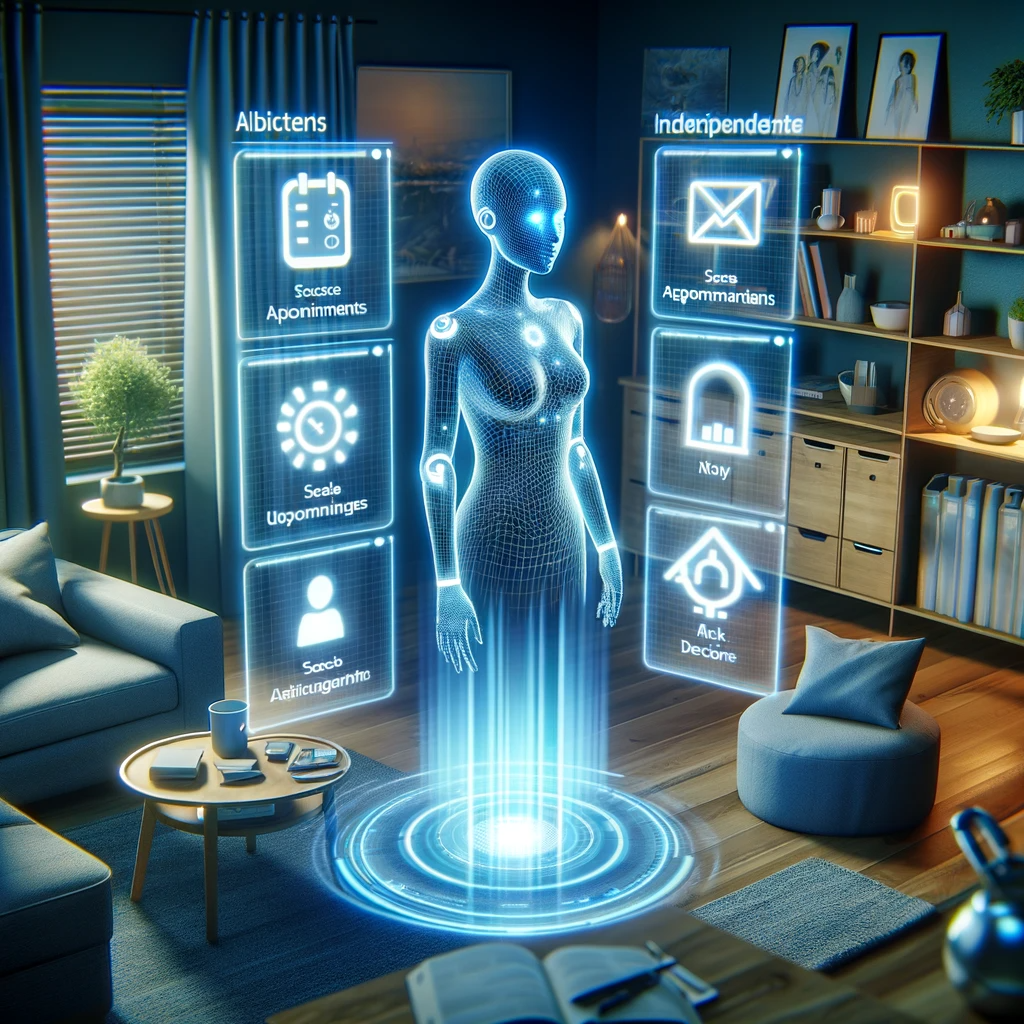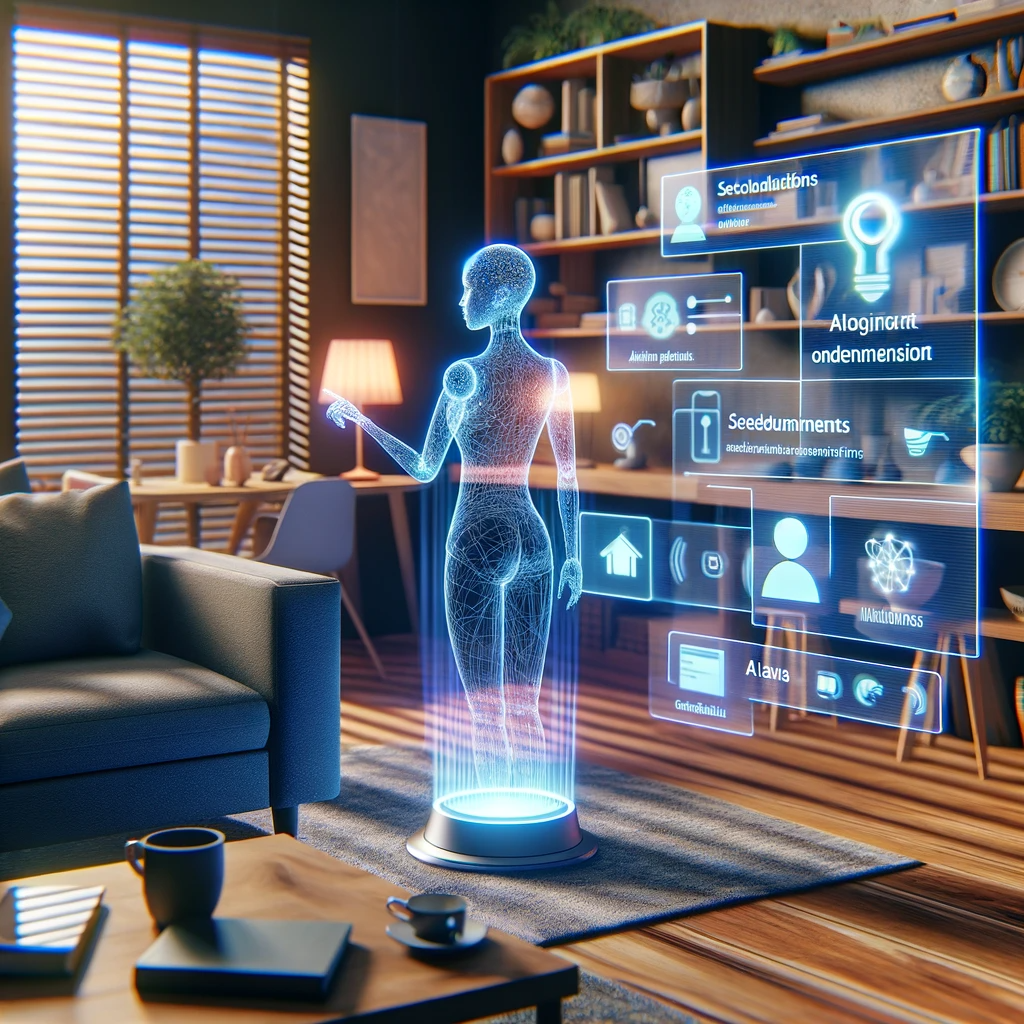The advent of artificial intelligence (AI) has witnessed the proliferation of AI-driven personal assistants, transforming the way we interact with technology. From Siri on Apple devices to Alexa by Amazon and Google Assistant, these digital companions have become integral parts of our daily lives. They help us set reminders, answer questions, control smart devices, and more. However, as AI continues to advance, a pivotal question arises: Can AI-driven personal assistants evolve into independent decision-makers?
In this exploration, we will delve into the current state of AI personal assistants, their evolution over time, and the prospects of them making autonomous decisions. As we navigate this intriguing landscape, we aim to provide insights into the capabilities and limitations of these digital companions and the potential implications of a future where AI personal assistants become more autonomous decision-makers.
The Current State of AI Personal Assistants
AI personal assistants have come a long way since their inception. Today, they are embedded in our smartphones, smart speakers, and even our cars. Siri, Alexa, and Google Assistant have become household names, providing us with answers, directions, and assistance with various tasks.
These digital helpers excel at tasks like setting alarms, sending text messages, and providing weather updates. They rely on predefined rules and patterns in data to respond effectively. However, their decision-making capabilities are currently limited to simple and predefined commands, making them assistive rather than autonomous.

The Evolution of AI Personal Assistants
The journey of AI personal assistants dates back to the early days of AI research. From early chatbots to today’s sophisticated voice-activated assistants, their evolution has been marked by advancements in natural language processing (NLP) and machine learning.
Initially, personal assistants relied heavily on rule-based systems, which limited their flexibility and adaptability. However, recent breakthroughs in AI, including deep learning, have enabled personal assistants to understand and respond to human language more effectively. This shift from rule-based systems to AI-driven models has set the stage for exploring their potential as decision-makers.
The Promise of Autonomous Decision-Making
The concept of autonomous decision-making by AI personal assistants holds immense promise. It envisions AI not only understanding natural language but also independently assessing situations and making choices in response to user queries and commands.
Imagine a world where your AI personal assistant can not only answer questions but also proactively suggest solutions, make appointments on your behalf, or even manage your daily schedule by anticipating your needs. Such capabilities could significantly enhance user convenience and productivity.
In this section, we will delve deeper into what autonomous decision-making means for AI and highlight the potential benefits it could bring to our lives.
Technical Challenges and Ethical Considerations
While the idea of AI personal assistants making independent decisions is enticing, it is not without its challenges. There are several technical hurdles that must be overcome to achieve true autonomy. These include the availability of comprehensive and unbiased data, the complexity of decision-making in dynamic environments, and the need for AI to adapt to new and unforeseen situations.
Moreover, there are ethical concerns surrounding AI autonomy. Issues related to user privacy, bias and discrimination in decision-making, and the accountability and transparency of AI actions need careful consideration.
In this section, we will explore the technical challenges and ethical dilemmas that accompany the quest for AI personal assistants to become independent decision-makers.
The Path Forward: Research and Development
The realization of AI personal assistants as autonomous decision-makers is an ongoing journey. Research and development in AI are at the forefront of shaping the future of these digital companions.
Today, AI researchers and tech companies are actively working on improving AI models, enhancing their understanding of human context, and refining their decision-making abilities. Collaborative projects between academia and industry are driving innovation in this field.
In this section, we will examine the current trends in AI research related to personal assistants, industry efforts to enhance AI autonomy, and the significance of collaborative projects and partnerships in advancing this technology.
The Human-AI Interaction
As AI personal assistants evolve, the dynamics of human-AI interaction are also changing. Balancing AI autonomy with user control is a critical consideration. Users need to have confidence in their AI assistants while retaining the ability to influence and supervise their decisions.
The importance of user input and preferences in guiding AI actions cannot be overstated. This section will delve into how humans and AI can coexist effectively, ensuring a harmonious and beneficial interaction.
Case Studies and Experiments
To gain a deeper understanding of the potential and challenges of AI personal assistants as decision-makers, it’s crucial to examine real-world case studies and experiments. These provide insights into how AI is currently being used to make decisions and the ethical dilemmas that may arise.
We will explore instances where AI personal assistants have made autonomous decisions, ethical issues encountered in experiments, and user feedback and satisfaction levels in response to AI-driven decision-making.
Public Perception and Acceptance
Ultimately, the success of AI personal assistants as independent decision-makers depends on how they are perceived and accepted by the public. Trust is a fundamental aspect of this acceptance.
We will investigate how people perceive the idea of AI personal assistants as decision-makers, the level of trust placed in AI, and the role of education and awareness in shaping public perception and acceptance of this technology.
Future Scenarios and Predictions
As we look ahead, it’s essential to envision various scenarios for the future of AI personal assistants. Predicting how these digital companions will evolve and the roles they will play in our lives is a complex task, but we can speculate based on current trends and emerging technologies.
In this section, we will explore potential future scenarios for AI personal assistants, ranging from increased autonomy to their integration into various industries. Expert opinions and predictions from thought leaders in the field will provide valuable insights into what the future might hold for these AI-driven decision-makers.

The concept of AI personal assistants evolving into independent decision-makers represents an exciting frontier in the world of artificial intelligence. These digital companions have already become indispensable in many aspects of our lives, simplifying tasks and enhancing our productivity. However, their potential to make autonomous decisions opens up new possibilities and challenges.
In this article, we embarked on a journey to understand the current state of AI personal assistants, their evolution, and the promise of autonomous decision-making. We explored technical challenges and ethical considerations that accompany this evolution, emphasizing the need for responsible development and ethical AI practices.
We also considered the evolving dynamics of human-AI interaction and the critical role of user input and trust. Real-world case studies and experiments shed light on both the potential benefits and ethical dilemmas of AI-driven decision-making.
Public perception and acceptance will play a pivotal role in shaping the future of AI personal assistants. Trust, transparency, and education will be key factors in determining how readily users embrace AI autonomy.
Looking forward, the future of AI personal assistants holds endless possibilities. The path to autonomy is paved with innovation, collaboration, and careful consideration of the ethical implications. Whether AI personal assistants become fully autonomous decision-makers or continue to serve as assistive tools, one thing is certain: their impact on our lives and the way we interact with technology will remain profound and transformative.
As we conclude this exploration, we recognize that the journey is far from over. The future of AI personal assistants is a dynamic and evolving landscape, and it is up to us, as developers, researchers, and users, to shape it responsibly, ethically, and in a way that enhances our lives and society as a whole.
